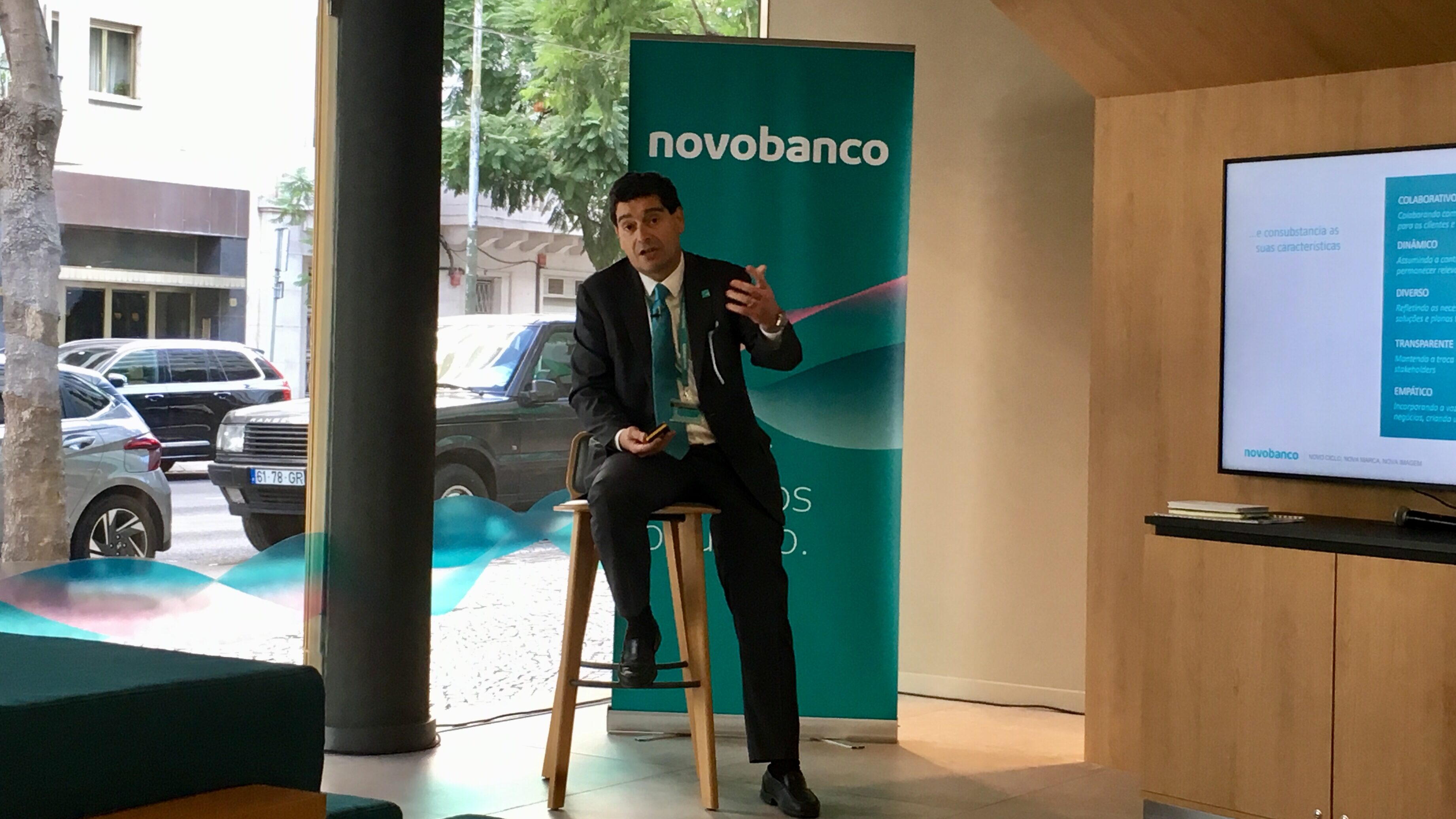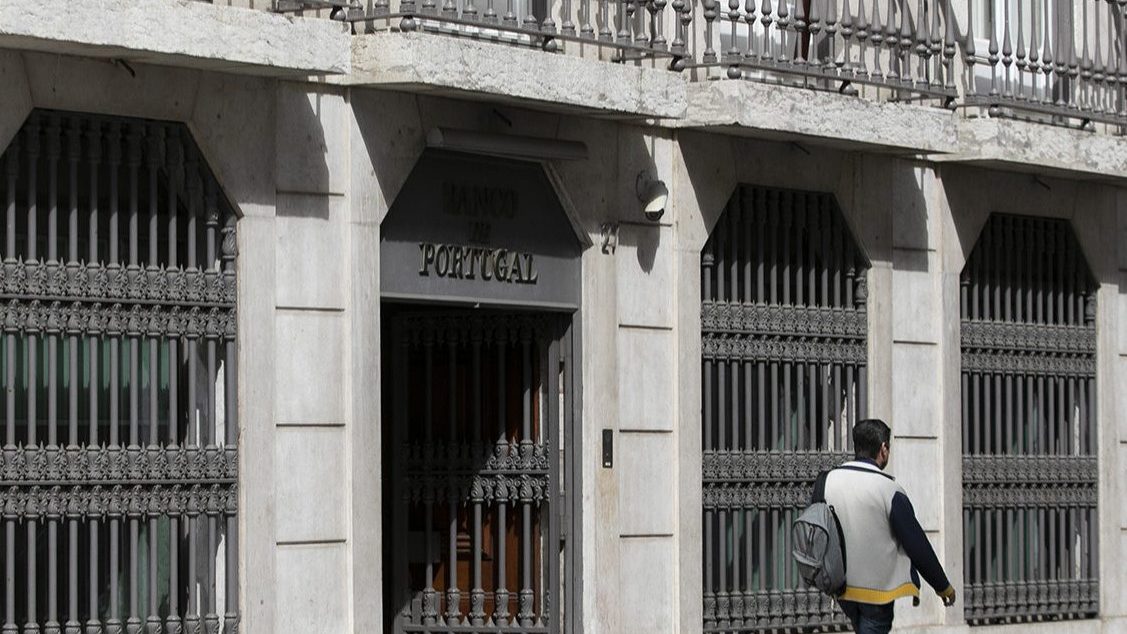Appeal court upholds Haitong, Ricardo Salgado fines
At issue is the CMVM's decision of July 2021 for practices harmful to BES clients, relating to the sale of Espírito Santo Internacional (ESI) and Rioforte commercial paper at the bank's branches.
The Lisbon Court of Appeal confirmed fines of €400,000 for Haitong Bank and €2 million for Ricardo Salgado, imposed in connection with the sale of ESI and Rioforte commercial paper in Espirito Santo banks.
In the ruling of the Lisbon Appeal Court dated Wednesday, which Lusa read on Friday, the panel dismissed the appeals filed by Haitong Bank (formerly Banco Espírito Santo International, BESI) and the former chairman of BES, following the decision of the Competition, Regulation and Supervision Court, which in February this year, aggravated the fine imposed on the bank by the Securities Market Commission and upheld that for Ricardo Salgado.
The decision of the Intellectual Property and Competition, Regulation and Supervision Section (PICRS) of the Lisbon Court of Appeal (TRL), subscribed by the judge advocates Maria da Luz Seabra, Carlos Melo Marinho and Ana Pessoa, also considered totally unfounded the appeals filed by José Manuel Espírito Santo Silva and Amílcar Morais Pires.
Manuel Espírito Santo Silva’s request for a suspension of the fine of €500.000 was considered partially founded, with the court suspending the payment of €150.000 for three years.
At issue is the CMVM’s decision of July 2021 for practices harmful to BES clients, relating to the sale of Espírito Santo Internacional (ESI) and Rioforte commercial paper at the bank’s branches.
The CMVM accused the former heads of the group of providing false information to investors in the issuance of ESI and Rioforte commercial paper, in addition to not telling the investors of the changes in the organizational chart of the Espírito Santo Group, which placed Rioforte as the owner of Espírito Santo Financial Group (ESFG), which had the participation of BES.
In last February’s decision, the court aggravated the fine imposed by the CMVM on Haitong, from €300,000 to €400,000 (suspended in the amount of €200,000 for two years), and upheld the €2 million fine on Ricardo Salgado, considering his appeals totally unfounded.
The sentence, issued by judge Vanda Miguel, partially upheld the appeals filed by José Manuel Espírito Santo Silva, who saw the fine reduced from €750,000 to €500,000 (suspended in the amount of €250,000 for two years, taking into account that he was the only one to issue a public apology in 2014), by Manuel Espírito Santo Silva, whose fine was reduced from €900,000 to €500,000, and by Amílcar Morais Pires, whose fine was reduced from €400,000 to €300,000, acquitting Joaquim Goes and Rui Silveira.
The Court also applied an accessory penalty of disqualification from holding positions in financial institutions for five years for Ricardo Salgado, three years for Manuel Espírito Santo Silva, two years for José Manuel Espírito Santo and one year for Amílcar Morais Pires, after the case was declared final.
Vanda Miguel considered Ricardo Salgado as the main culprit for the adulteration, since 2008, of the financial results of ESI, whose accounts were neither consolidated nor audited.
The court said it was Ricardo Salgado, who was aware of ESI’s deficit situation, who was interested in the adulteration of data and the transmission of a false image. Vanda Miguel referred to the testimonies of several witnesses who recounted the “daily nightmare” in the face of the absence of responses when they became aware of the exponential increase in the liabilities of this company of the Espírito Santo Group (GES).
The Court also considered it proven that it was the Supreme Council of GES, which brought together members of the Espírito Santo family, which took decisions, giving the example of the restructuring of the group decided and executed before being ratified by the board of directors of Rioforte, “one of the central pieces” of this restructuring.
Vanda Miguel said this was a paradigmatic case of how “a body without formal powers had de facto power, recognised by all”.
In its decision, the court considered that the former BESI, now Haitong (which acquired the brand after the resolution of BES in 2014), was aware of the commercial paper issues of Rioforte and ESI, as well as the information notes that were issued, and did not limit itself to routine work, as alleged in the appeal.
The court also said there was a duty within the organisation to communicate relevant information to management, a duty to which Ricardo Salgado, José Manuel Espírito Santo and Morais Pires were also bound.
On the other hand, she pointed out that, having used the information notes of the debt issuers, BES knew that the information it sent to its clients was insufficient and incomplete, failing to comply with its duties to provide quality and reliable information, placing itself at the service of the financial interests of GES.
In particular, Vanda Miguel referred to the fact that products acquired by clients were altered for the benefit of the intermediary with effects on the issuer, in “blatant violation” of the rules of conflict of interest.
In the part of the decision relating to Ricardo Salgado, the judges said in their ruling on Wednesday they disagreed with the allegation in the appeal that “the general and special prevention needs are all the smaller when it is found that the defendant cannot understand the whole of the sanction”, about his diagnosis of Alzheimer’s disease.
The judgment underlines, on the one hand, that “the requirements of general prevention are not addressed to him personally, but to other operators in the financial markets who must be deterred from engaging in conduct of the type engaged in by the appellant, which poses a grave threat to the stability of the financial system, by increasing systemic risks”.
On the other hand, she said that it had not been proven that the former president of BES “is effectively incapable of understanding the real scope of the convictions imposed on him, only that he has a clinical diagnosis compatible with Alzheimer’s disease, and the age factor is not necessarily synonymous with a reduced perception of reality, of the extent of his conduct and the sanctions imposed on him”.


